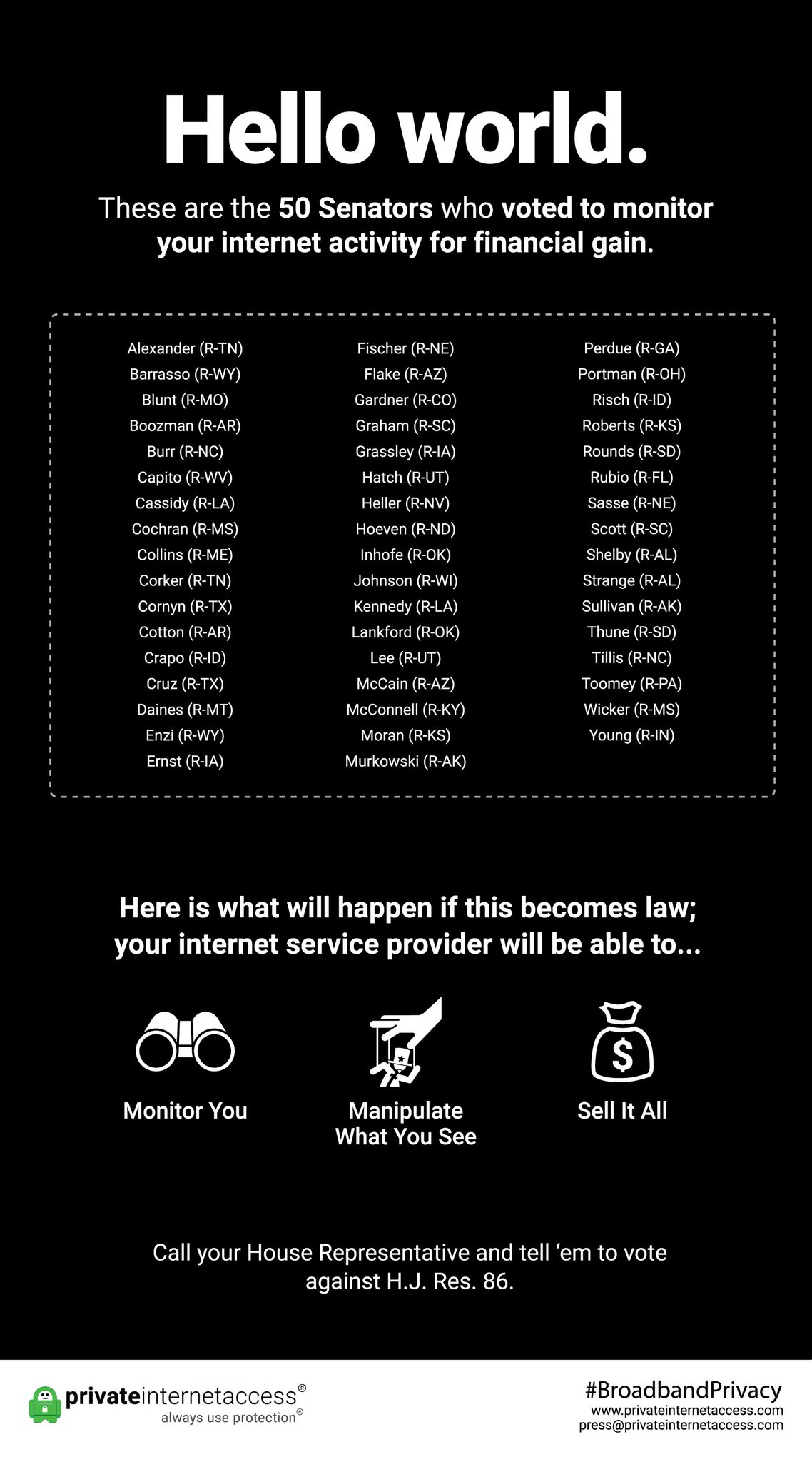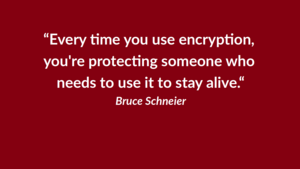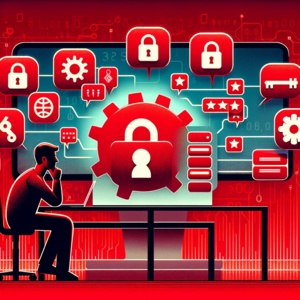Internet Privacy: How to Keep Your Internet History Private

On the internet, your privacy is at risk
In March 2017, 50 Senators voted against Internet Privacy, the bill was then ratified by the House of Representatives and then signed by President Trump. It’s important to never forget the politicians that put us in this horrible internet privacy predicament to begin with.

However, it’s also important to not forget that we’ll need the help of politicians to get the laws right, and protect them once they finally are. Even without federal protections, states and even cities have rallied together to keep the same, basic internet privacy protections. For the hundreds of millions of Americans that are online, even those that live in states that have drawn up their own internet privacy protections in the dearth left by Congress’s actions, internet privacy is a very real concern.
Now that ISPs can monitor you, manipulate what you see, and sell it all - Is your internet history private?
ISPs promise to anonymize your internet history before selling it, but in practice that isn’t at all effective. German journalists have proven that the supposedly anonymized data that ISPs sell to advertisers can be easily de-anonymized and used to trace actions and website visits back to individuals. Journalists bought “anonymized” internet history information from the ironically named Web of Trust browser plugin, along with others and was able to find pornography and drug preferences as well as banking and travel information on German politicians.
There are essentially two situations around the world - countries where ISPs and telecoms are forced to hold all of your communications and metadata for multiple months, sometimes years. This type of storage of your internet history is susceptible to being hacked or leaked. Even the ISPs in countries where mandatory logging exist, such as Russia and Australia, have noted that the costs of keeping these logs is prohibitive - meaning that concessions will inevitably be made in securing that data. Elsewhere, such as the United States, there may not be mandatory logging laws; however, there is an economic incentive to collect your internet history - and all the information they legally can on you - to sell to third parties. Wherever you are in the world, every internet user needs to invest in keeping their internet history private.
Can’t I just turn on Incognito Mode or Private Browsing?
Keeping your internet history private from your ISP cannot be done by simply turning on Incognito Mode or Private Browsing. Just opening a private or incognito window in your browser does not stop your ISP from knowing what sites you have visited - it merely stops a local copy of your internet history from being stored. Even if you’re using HTTPS everywhere, your ISP will still know which sites you’ve been to (and for how long) because you use their DNS. The easiest way for a user to keep their internet history private is by using a paid VPN service.
How to keep your internet history private
A Virtual Private Network (VPN) allows you to change your IP address and encrypts your traffic so your ISP can’t see your internet traffic or where it goes. To keep your internet history private, give Private Internet Access a try.
Guest post by Caleb Chen

Caleb Chen is the Director of Marketing at Private Internet Access VPN. Caleb holds a Master's in Digital Currency from the University of Nicosia as well as a Bachelor's from the University of Virginia. He feels that the world is moving towards a better tomorrow, bit by bit by Bitcoin. He regularly writes about privacy and VPNs at the PIA blog.

No comments available










